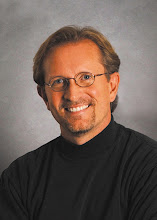August 26, 2007
Dear Friends,
The very first time I decided to solve a problem by consciously putting my “faith” in the divine flow, I experienced a minor, but immediate, miracle. Later that same week, I tried it again. And again, the challenge I was facing worked out miraculously. And when I consciously relied on the flow to help me with another issue a few days later, once again everything fell into place marvelously.
I’m not sure, however, if “faith” is the most accurate word to use in describing those early experiences. Why? Because the first few times I turned my problem over to a “higher power,” I honestly didn’t think it would work. At the time, I was skeptical about the whole “let go and let God” thing. But I could also see how my usual way of handling challenges—through control, manipulation, force, and persuasion—wasn’t working very well. So, even though I was extremely doubtful that any kind of positive outcome would occur without my direct involvement, I decided to “give God a shot,” so to speak.
Twenty years later, I have countless stories about how the divine flow has consistently responded to my needs and desires. So, at this point, you would think that I would be a person of great “faith,” right? Well, sort of.
I actually rarely use the word “faith,” because to some people that means believing in something without any concrete reason to do so. But I have plenty of concrete reasons to believe in the flow. My life experiences have proven to me over and over again that we do, indeed, live in an intelligent, responsive universe—a universe that is continually offering us its celestial assistance. So today, when I consciously rely on the flow to help me fulfill a specific desire or solve a particular problem, is that an example of “having faith” . . . or is it just a reasonable expectation based on two decades of experience?
It’s an interesting question, but not nearly as important as this one: Why is it that we can experience miracle after miracle, year after year, and still quickly revert to that feeling that it is up to us—and us alone—to get what we want or need out of life?
It’s amazing to me that—no matter how often we experience the divine flow in our lives—turning to that flow for assistance is still not something that most of us do instantly. Instead, our first thought is usually “What am I going to do about this?”
Perhaps the clearest answer to this larger question is in the books of Eckhart Tolle, who writes about the development of our ego-identities, and how those identities are essentially based on a sense of separation from others (and thus, from God). He goes on to explain how—deep down inside—part of us believes that we will literally cease to exist if we ever give up the separate “I” that we think we are. So we cling to that sense of “I” tenaciously.
Based on that, it’s no surprise that “What am I going to do about this?” is often our initial reaction to any need or issue that arises in our life . . . regardless of how often we have experienced the miracles that come from a sense of oneness instead of a sense of separation.
The good news is this: It gets easier to “have faith” as time goes by. Yes, when a challenge arises in my life, sometimes my first thought is still “What am I going to do about this?” But I no longer have that thought every time. And when I do have it, I don’t retain that thought for very long.
Year after year, I find it easier and easier to remember that I am part of a universal whole that is continually guiding me toward my highest good, and toward the highest good of all. Day by day, I am able to “let go” more quickly, and “let God” more readily.
Here’s to the “faith” that comes from practicing the principles involved with living life in the divine flow, and discovering through “experience” that these principles do, indeed, help us live more joyful, fulfilling, and effortless lives.
Steven
© 2007 by Steven Lane Taylor
Subscribe to:
Post Comments (Atom)





No comments:
Post a Comment